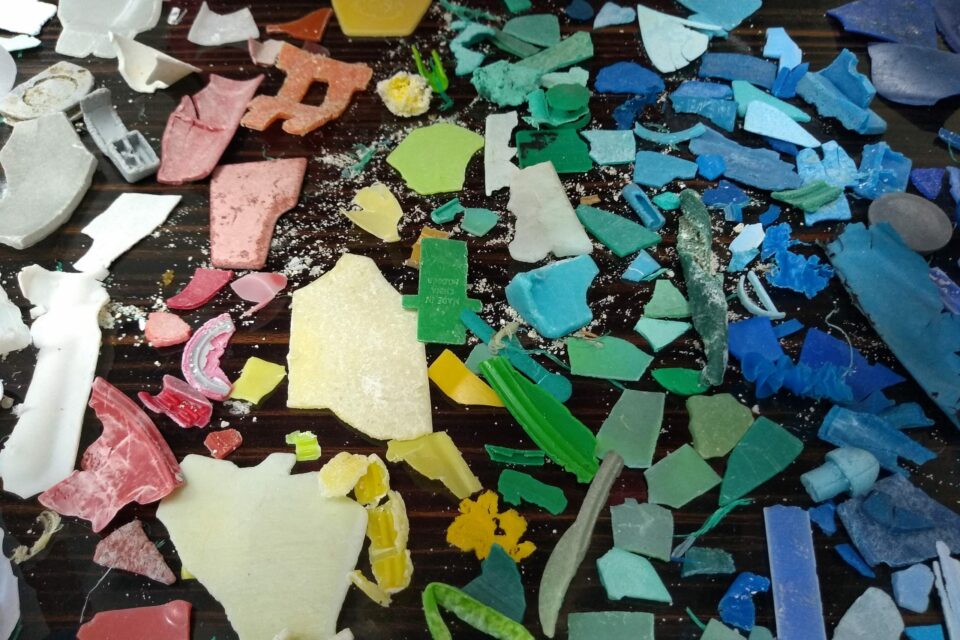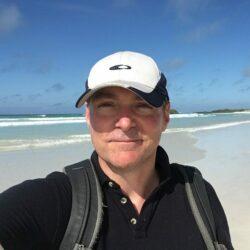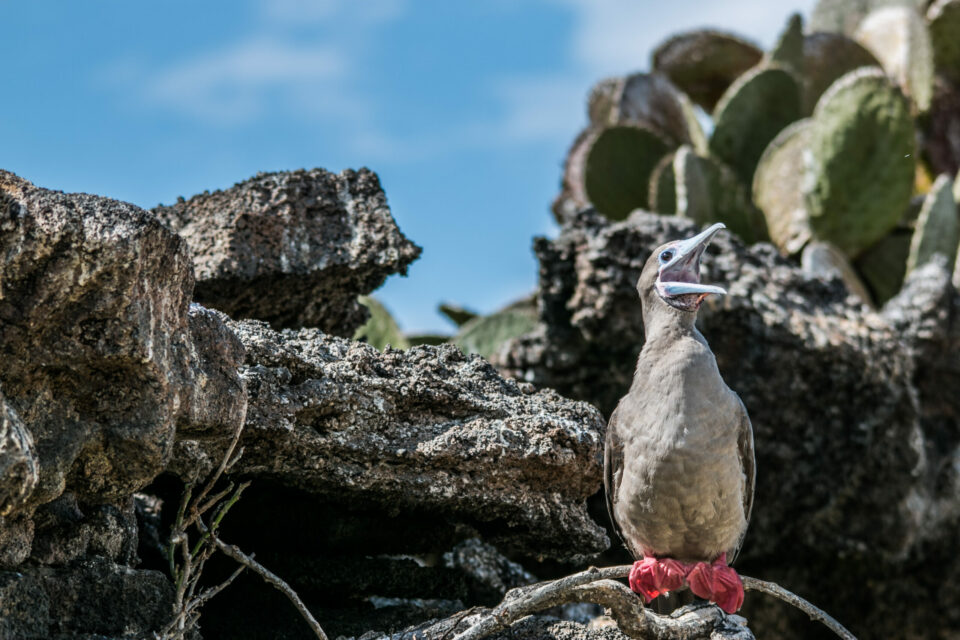

Science to Solutions plastics workshop
In a world becoming suddenly aware about the impacts of ocean plastics, a collaborative project has emerged in Galapagos that can genuinely be an example to the world.
Over the course of 25 years working on science partnership programmes, I have never seen an opportunity as clear and as significant as the one which presented itself at the beginning of May 2018 in Galapagos.
GCT had been approached by the Galapagos Science Center and the University San Francisco Quito to support research into marine plastic pollution in the Archipelago. The Galapagos National Park (GNP) has been increasingly concerned about the issue. The biodiversity and economy of the Galapagos Islands is more susceptible to the impacts of this pollution than many places, with species that are found nowhere else in the world now threatened by the impacts of plastics. Pressures on the ecosystem are increasing with over 240,000 tourists visiting the Islands each year and 30,000 local residents wanting the same modern day conveniences of anywhere in the world. The GNP and authorities in Galapagos are charged with the difficult balance of providing access to the world to celebrate and be inspired by the Islands, while protecting its delicate environment. GCT’s role is to support their efforts through impactful science and education programmes.
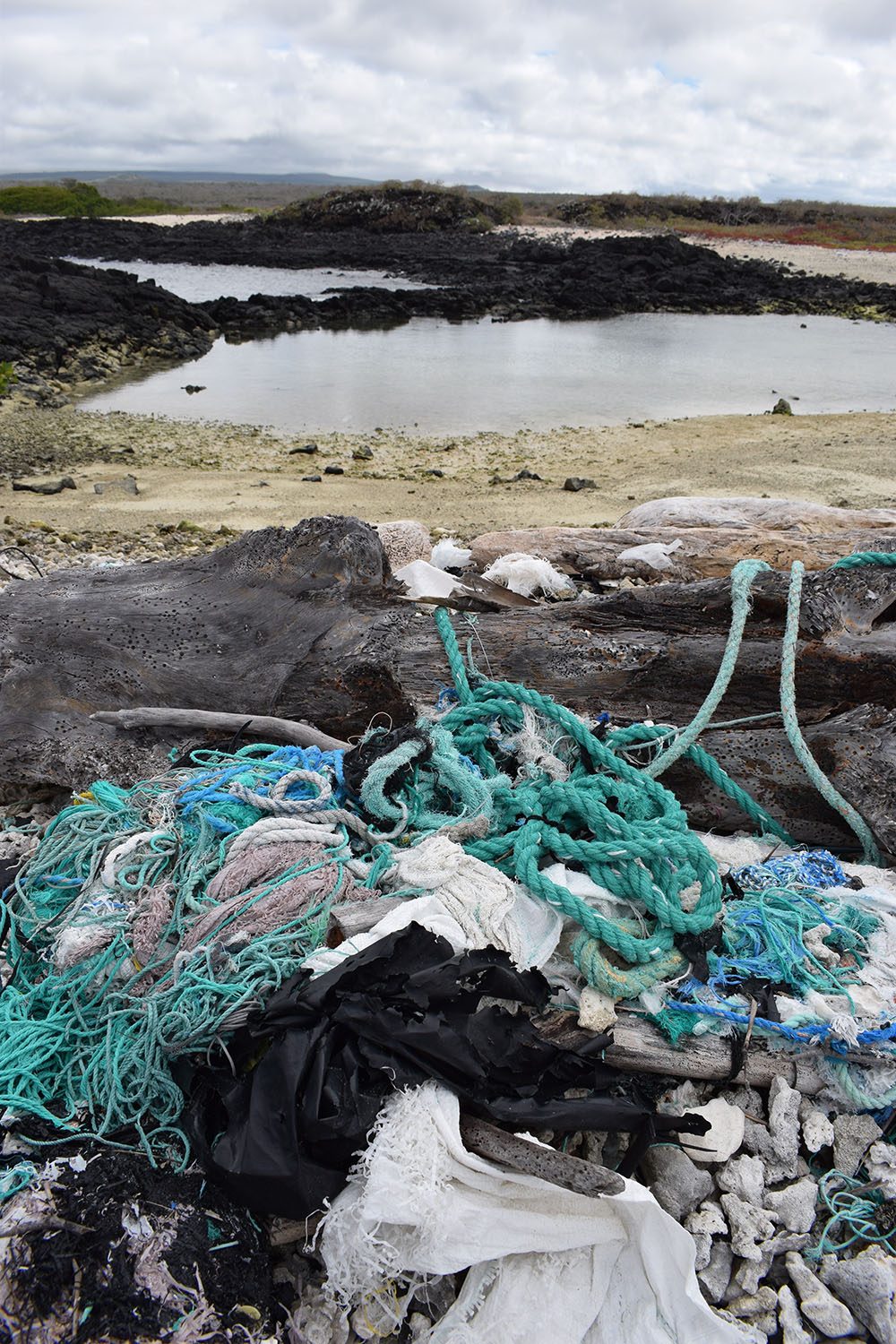
Sadly, in spite of Galapagos being a relatively pristine Archipelago, it is not immune from the issue of plastic pollution © Andy Donnelly
With plastics becoming a priority on the Islands, GCT consulted widely with world experts over the course of the last year as to the best approach. It became apparent that there was strong potential for lessons learned around the world to be applied in Galapagos, if the nature of the problem and the requirements of the authorities could be properly understood.
Science to Solutions workshop
And so in early May, I found myself in a remarkable place, facilitating a workshop with amazing people representing the Galapagos authorities, the community – both young and old – and a team of internationally-recognised marine plastics scientists. The Science to Solutions workshop took place on San Cristobal island at the Galapagos Science Center and then on Santa Cruz at the Charles Darwin Research Center.
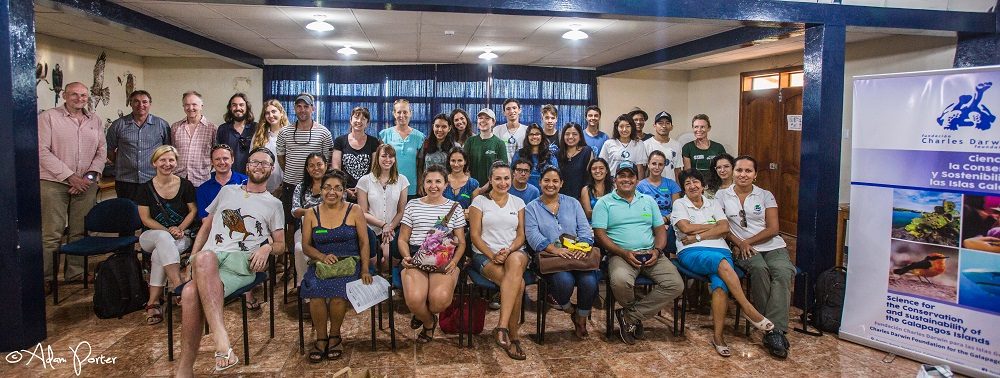
A photo of some of the workshop delegates that attended over the four days in Galapagos © Adam Porter
Over the course of four days we analyzed the key opportunities and barriers to tackling plastic pollution in the Archipelago. The aim was to understand existing work and agree how best the international community could support this work. Through a combination of field work, plenary sessions and focus groups, the workshop team addressed three interdependent themes: modelling the system, ecological impacts of marine plastic pollution, and understanding drivers of human behaviour. Each theme assessed the status of knowledge, data and recommended actions required to move to sustainable solutions.
Over the course of the four days it became clear that Galapagos is incredibly well placed to show the world how to drastically reduce marine plastic pollution and even become the world’s first (macro) plastic pollution free marine reserve.
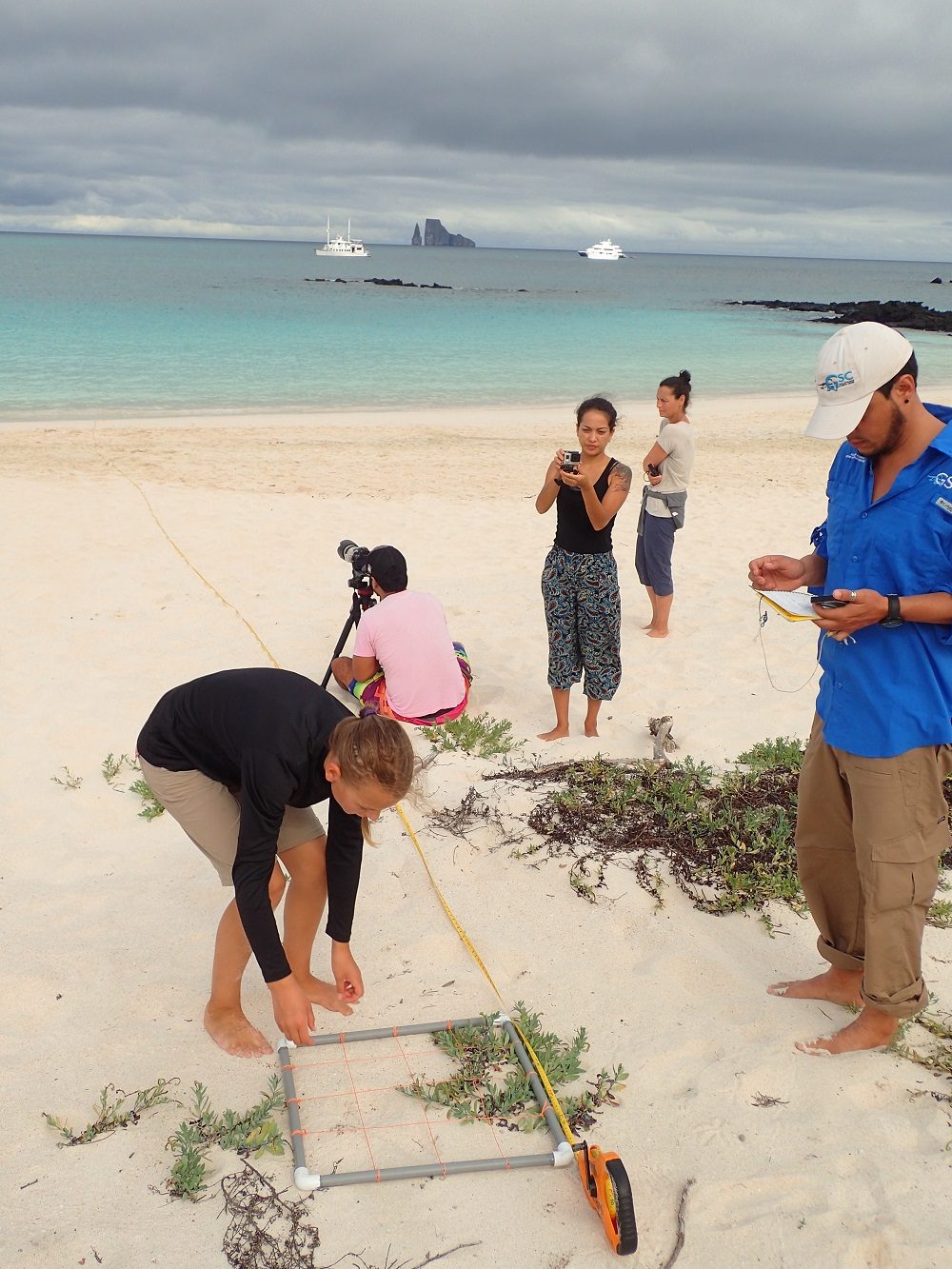
Juan Pablo Munoz and volunteers undertaking a microplastics beach survey © Andy Donnelly
So much has been done already including GNP beach clean-ups, initial surveys and community action, and a series of legislative changes targeting the reduced use of singe-use plastics is being rolled out by the authorities. Key information that we can base decisions on is missing though; including primary sources, priority impacts and most effective messaging to target change.
But these knowledge gaps are easy to fill. With some funding, coordination and high-tech oceanography tools to support the decision makers, the Galapagos Archipelago is uniquely positioned to tackle marine plastic waste and provide a template for the rest of the world.
The workshop will lead to a collaboration agreement and a funding plan to support the work program needed. The stars are aligning in Galapagos for a partnership with all the key elements needed to address marine plastic pollution.
Galapagos has inspired the world before, it can do it again. After all, if we can’t fix this problem in Galapagos, where can we fix it?
If you would like to donate to make Galapagos free of plastic pollution, then click here or read about this ambitious project here.
This workshop was kindly funded by the Woodspring Trust and the LATA Foundation as well as through donations from our recent Plastics Appeal. A huge thank you as well to Bristle and Ecostrawz who donated alternative products for the workshop.

This workshop was part-funded by the Woodspring Trust
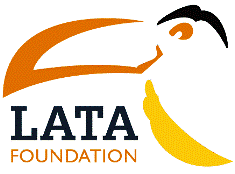
The LATA Foundation kindly donated funds to allow more community participation in this workshop.

EcoStrawz was founded in 2013 in the UK to help tackle the 1 billion disposable plastic drinking straws used daily worldwide. Their eco-friendly drinking straws fall into two main types; reusable or disposable, and Ecostrawz kindly donated a selection of alternative straws for our workshop.

Bristle is a small new UK based company founded to try to reduce the amount of plastic waste by creating bamboo toothbrushes with a 100% biodegradable handle and eco-friendly packaging. Bristle kindly donated an eco-friendly toothbrush to each of our delegates.
Related articles

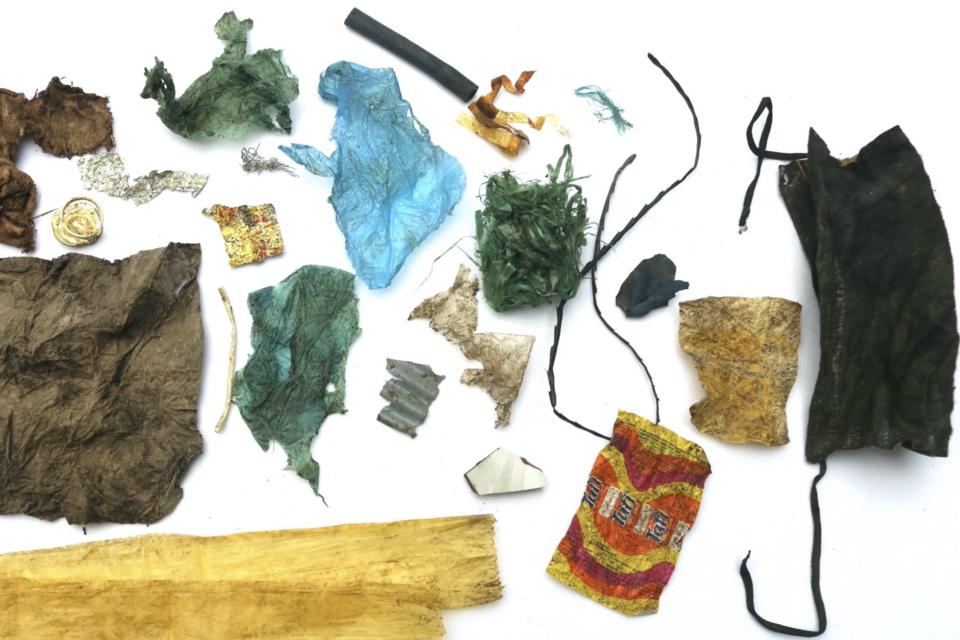
New research shows that Galapagos giant tortoises are ingesting plastic waste
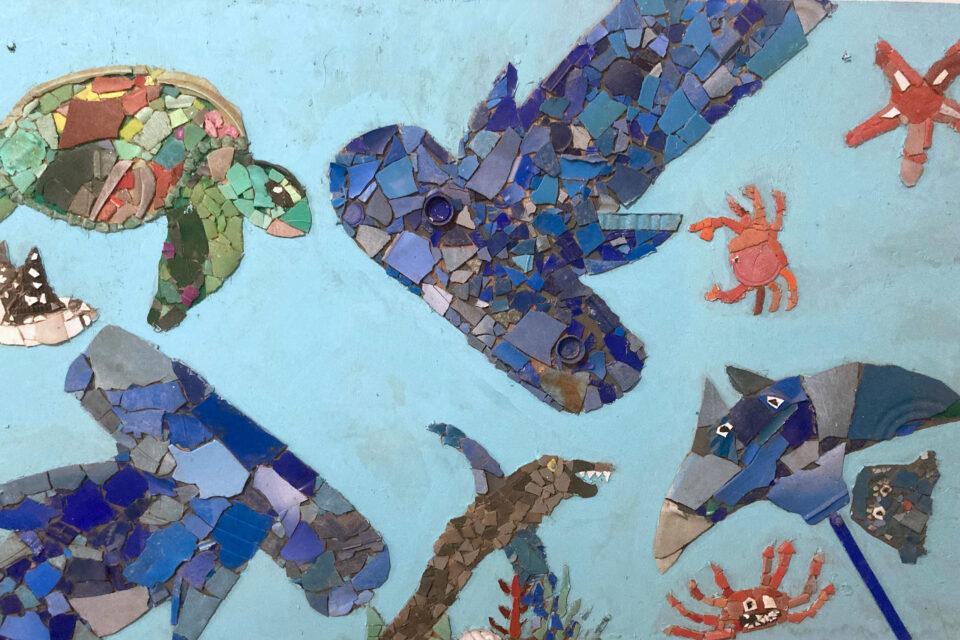
Creating a circular economy for plastics in Galapagos
